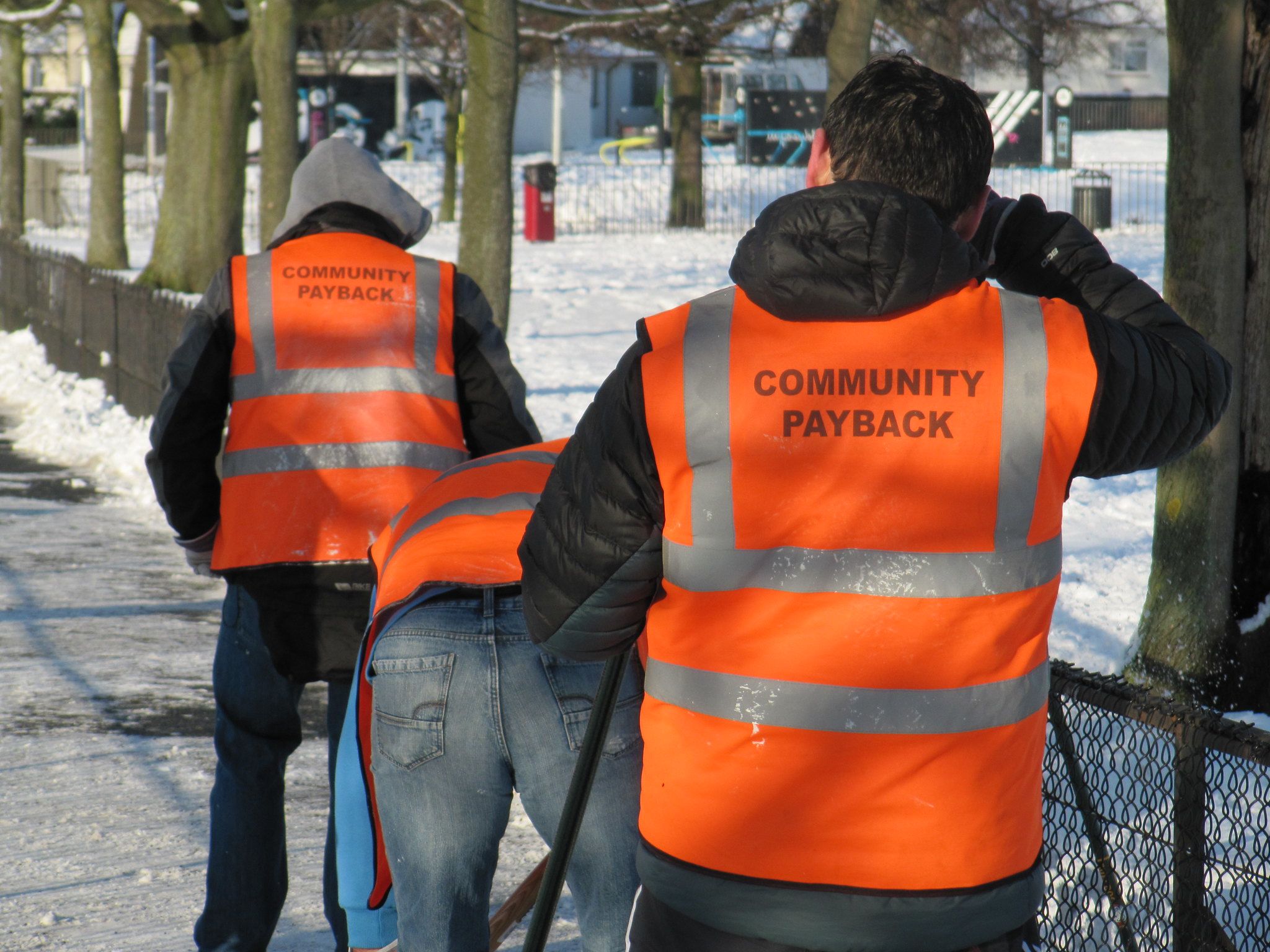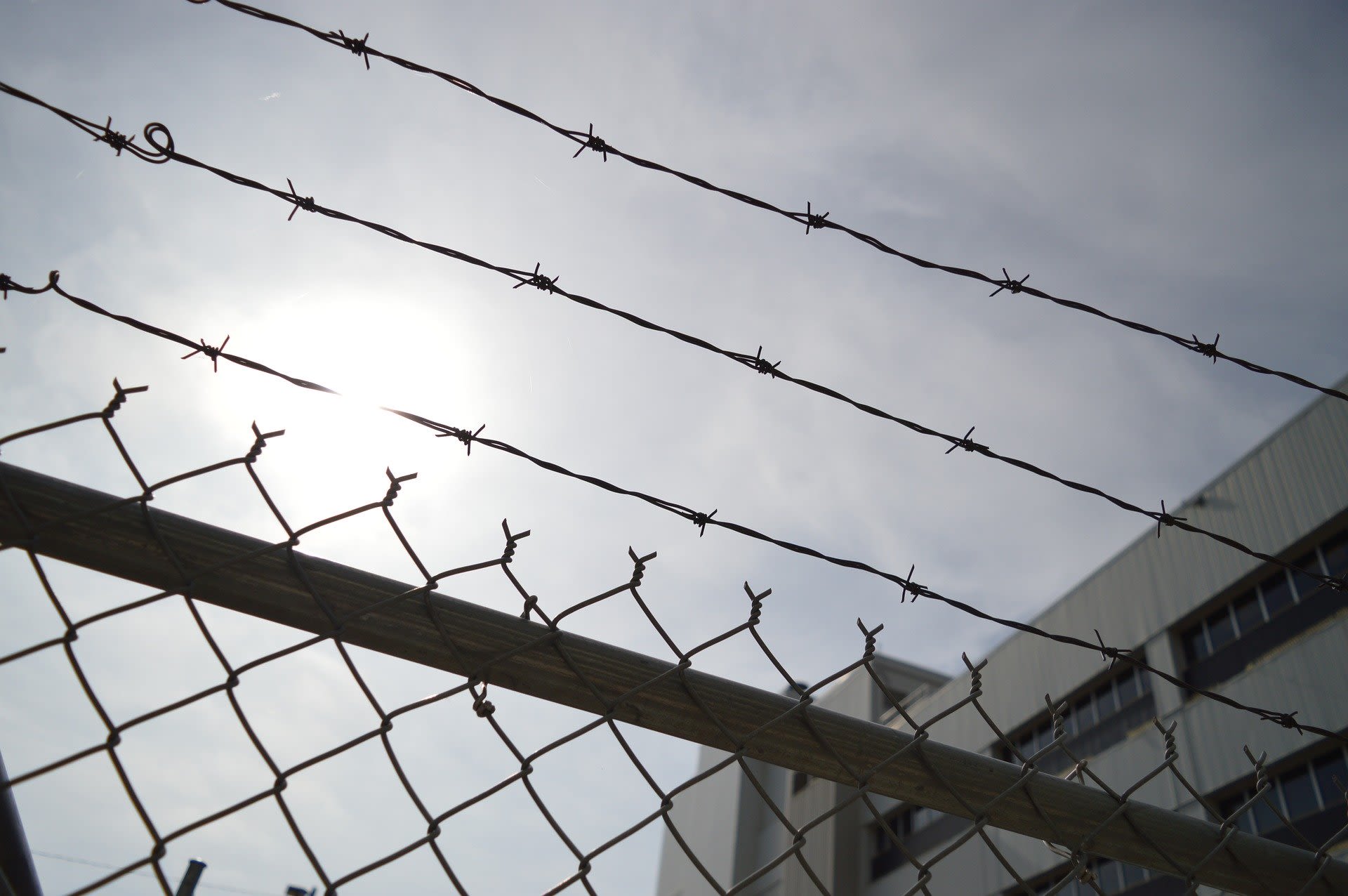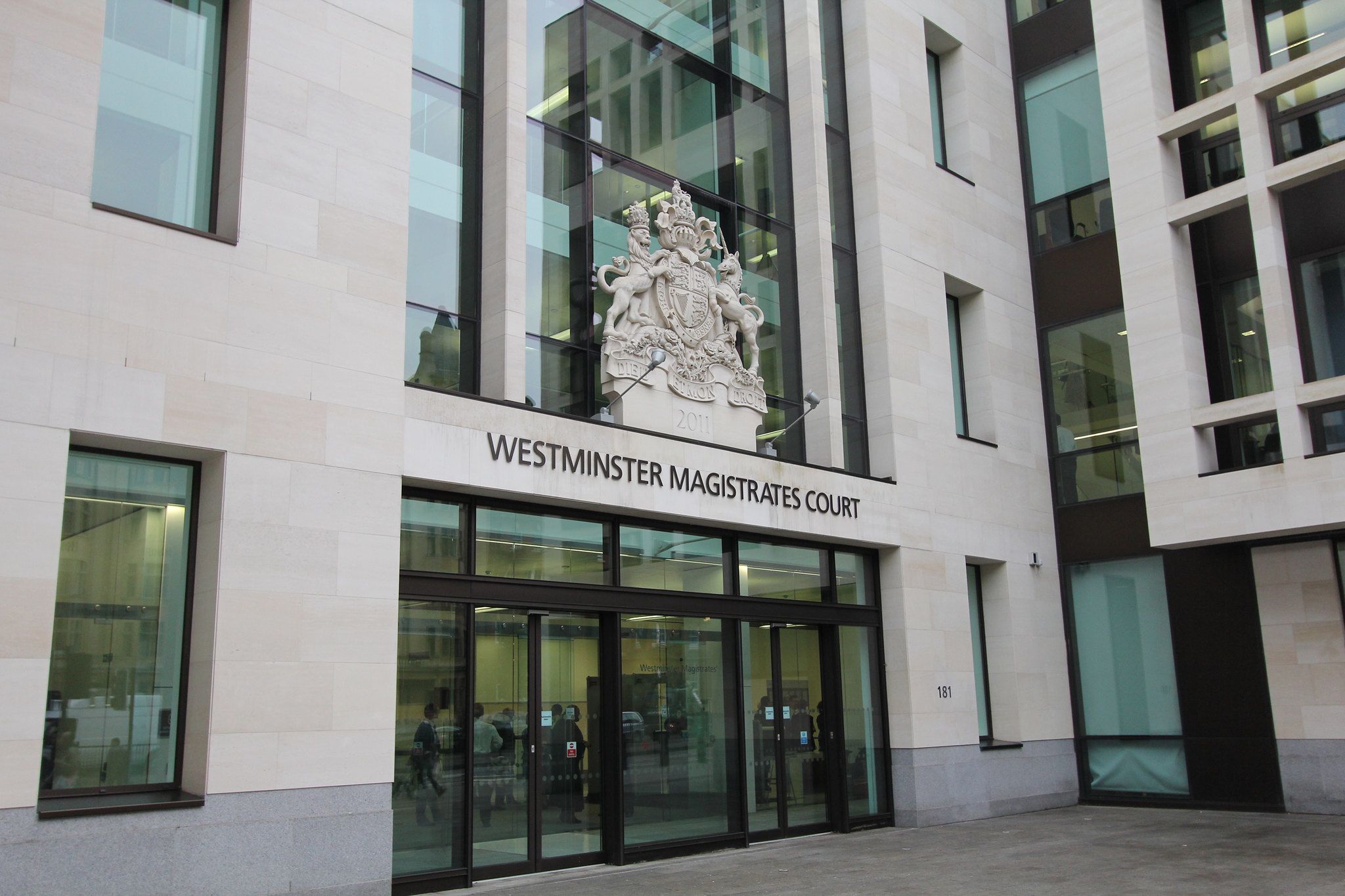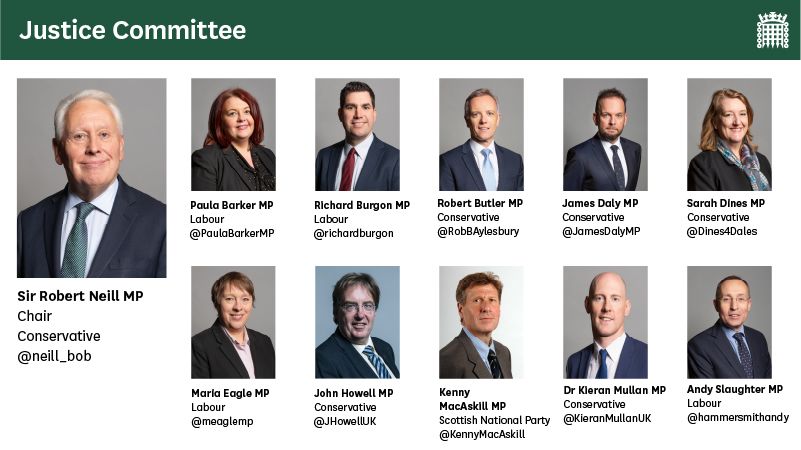How has coronavirus impacted the justice system?
We look at the effect of COVID-19 on probation, prisons, courts and legal professions

The urgent and unprecedented threat of coronavirus has required immediate action across the justice system.
COVID-19 has come at a time when the probation system in England and Wales is undergoing significant reforms. It has put additional pressure on a prison system already in a state of crisis, something our predecessor Committee previously published a report on, and changed the way courts and legal professions operate.
Given that people in contact with the criminal justice system tend to be in poorer health than the general population and have greater need for heath care, it was vital that swift action was taken to save lives.
The coronavirus pandemic is an extraordinary event. We, MPs on the Justice Select Committee have looked into the ways it has impacted probation and prison services, courts and the legal professions, and what action has been taken to protect lives and keep services running.
This is what we heard.
Probation
Three key ways coronavirus has impacted probation services in England and Wales

Backlogs of work have built up
On 24 March 2020, the probation service moved to an exceptional model of delivery, which changed the way in which probation services are delivered. Face-to-face supervision was replaced with digital supervision via phone, Skype and messaging. For high-risk offenders, the probation service has made doorstep visits. Offenders have been unable to complete sentence requirements like unpaid work.
"There will be a huge backlog of unpaid work, for example, that will still need to be done, and there is a deadline for delivering that within 12 months of sentence. There will be a backlog, as you say, of accredited programmes, which won’t have been completed."
We recommend that the Ministry of Justice (MoJ) and Her Majesty's Prison and Probation Service (HMPPS) set out how the probation service intends to address this backlog, and how they will ensure that all those under probation supervision will be able to complete sentence requirements like behaviour programmes.
COVID-19 has exacerbated already present staffing issues within the probation service
Staffing was a significant issue before the coronavirus pandemic. The National Probation Service (NPS) reported more than 600 vacancies in England and Wales in June 2019, and HM Inspectorate of Probation noted in the same report that:
"Workloads are high, with 60 per cent of probation officers carrying a workload over the 100 per cent target level and some much more than this."
Low staffing levels and high case-loads continue to present challenges during the current pandemic. In addition to existing vacancies, in April we heard from Amy Rees, Director General of Probation and Wales that around 2,000 staff were off work due to COVID-19 each day. Morale and wellbeing are being affected.
We recommend that the MoJ and HMPPS set out what existing and additional measures are in place during this time to support staff wellbeing.
COVID-19 has created a very different environment for those released from prison to enter
We heard from Helen Berresford, Director of External Engagement at the prisoner and ex-prisoner charity Nacro, that it is "an incredibly different situation out there".
As support services are being delivered remotely, everybody leaving prison needs access to a mobile phone to access them. They also need enough money to get started, and basic essentials like soap and food to get them through their first few days. If they need to use public transport, they may find it isn't running.
We recommend that the MoJ and HMPPS set out what additional measures they have put in place to support prison leavers.
Prisons
Three key ways Coronavirus has impacted prisons in England and Wales

The prison estate was placed in lockdown
On 24 March 2020, the prison service moved to an exceptional model of delivery which placed restrictions on regimes. Prisoners are spending less time out of cell, non-essential visits and employment have been suspended and education has been severely reduced.
Concerns have been raised about the effect regime changes may have on prisoners. The Howard League told us in written evidence that these conditions are "consistent with, or very close to, international definitions of solitary confinement (22 hours or more alone each day)".
In response to the suspension of visits, we heard from Dr Jo Farrar, Chief Executive of HMPPS and Lucy Frazer QC MP, Minister of State for Justice that HMPPS is making more phones available, and each prisoner is also allowed one video call per month on secure laptops lasting up to 30 minutes.
At the time of writing our report, the prison estate has been in a state of lockdown for 15 weeks. We are concerned that prisoners have not yet begun to transition from that state.
We are particularly concerned about how restricted regimes may affect the mental health of adults and children held in the secure estate, and we call on the MoJ to set out what additional measures and support have been put in place to support prisoners.
The prison population needed to be reduced
Prison overcrowding is an issue that predates the coronavirus pandemic. Public Health England wrote in an April 2020 briefing paper that single-cell accommodation was the most effective way to reduce transmission and protect vulnerable prisoners, but this would require significant reductions in prisoner population.
To help achieve this, the Government announced in April that selected risk-assessed prisoners within two months of their release date could be temporarily released. The Government said up to 4,000 prisoners would be eligible for the End of Custody Temporary Release scheme.
But we have heard that only a little over 200 prisoners have in fact been released.
We ask that the MoJ explain why the scheme has shown such slow progress and delivered very little in terms of increasing capacity in prisons.
The prison population may rise again
Reduced court activity, meaning fewer new prisoners, and the scheduled release of prisoners at the end of their sentences has driven a reduction in overall prison population during the pandemic.
As court activity begins to increase, we are concerned about whether the population will again rise, to the extent that it reduces prison staff’s ability to separate and cohort prisoners in the way that is presently being done.
We call on the Government to set out what work has been carried out to understand the potential impact of increased court activity on the number of people in prison and how any influx in population will be managed.
Courts
Three key ways coronavirus has impacted the courts in England and Wales

The courts have rapidly adopted remote hearings in response to the COVID-19 pandemic
Coronavirus has necessitated a significant increase in the role of technology in the justice system in England and Wales.
Data from Her Majesty's Courts and Tribunal Service (HMCTS) shows that the number of cases heard each day with the use of audio and video technology increased from fewer than 1000 in the last week of March to over 3000 by mid-April. The Judiciary and lawyers have largely been positive about the move to using video and audio channels.
But we have heard evidence that remote hearings are less satisfactory for some lay participants – for example witnesses and defendants – and vulnerable court users, especially young people or people with cognitive difficulties.
We recommend that HMCTS set out a policy to ensure that court users, particularly those who are or may be considered vulnerable, are sufficiently able to follow and participate in virtual processes.
There has been a significant rise in the number of outstanding cases in the magistrates' courts and the Crown Court
By contrast with some parts of the civil justice system, technology has not provided solutions to enable trials to go ahead in the magistrates' courts and the Crown Court at anything close to normal levels.
Even before the COVID-19 crisis began, the number of outstanding cases in the magistrates' courts and the Crown Court was high. The combined backlog for both has now grown to over half a million.
This backlog means that victims of crime will have to wait longer to know whether they will get justice and defendants awaiting trial will spend longer on remand in custody or out on bail in the community.
While the numbers are alarming, what matters is the rate at which the outstanding cases can be cleared.
We invite the MoJ and HMCTS to set out a comprehensive plan for how the backlog in unheard cases will be dealt with, including details of additional provision of court premises and sitting hours, proposed timelines for reducing the backlog and estimates of when the number of cases outstanding will be returned to pre-COVID-19 levels or lower.
Every effort must be made to ensure there is effective public debate on the measures introduced
Some of the changes made to courts and tribunals since March 2020 are likely to have long-term implications.
Many of the measures taken to respond to COVID-19 represent an acceleration of the ongoing court reform programme which began in 2016. Any steps taken to increase the capacity of the courts to hear cases more effectively is to be welcomed.
But some of these changes received limited scrutiny and debate before they were enacted, which was unavoidable given the circumstances. It is therefore vital that all those changes made, whether technological or procedural or more fundamental, are now subject to rigorous evaluation.
We recommend that HMCTS sets out how it intends to evaluate both the practical and qualitative effects of the changes carried out at pace in response to coronavirus.
Legal professions
Three key ways coronavirus has impacted the legal professions in England and Wales

Less legal activity has meant less income for legal providers
During the lockdown there have been fewer arrests and charges and fewer prosecutions brought by the Crown Prosecution Service. Trial by jury has been paused and fewer civil cases have started.
The Bar Council’s survey of barristers in England and Wales, published in April, concluded that:
"Work and the ability to earn money has dramatically disappeared for many barristers, with over half fearing for their future in the profession. Those barristers from more diverse backgrounds are disproportionately affected."
There is concern that this may result in a decline in diversity and social mobility at the Bar.
Legal services providers have been able to use some of the general financial support schemes offered by the Government and there have been some changes to the way legal aid is paid, but there are gaps in the support.
To address these gaps, Amanda Pinto, Chair of the Bar Council, suggested to us that there could be alternative verification of income to bring new barristers and returning practitioners within the remit of the Self-Employed Income Support Scheme.
Simon Davis, President of the Law Society, and Bill Waddington, Chairman of the Criminal Law Solicitors Association, made a strong case that changes were needed to the system of regular monthly payments of criminal legal aid with any repayments postponed until a time when the legal services providers can afford it.
We recommend the Government considers additional financial support, including that proposed by the Law Society and the Bar Council, as well as further grants for law centres and other not-for-profit legal services providers that are at risk of collapse.
Legal professionals have adapted impressively quickly to working from home and holding and attending hearings remotely
But Lord Burnett of Maldon, the Lord Chief Justice, told us that "the quality of the kit" that legal professionals have access to is important. In a rapid review of the impact of COVID-19 measures on the civil justice system, lawyers who responded also noted that they found remote hearings more tiring to take part in.
Concerns have also been raised that lay parties may not have access to the technology they need to communicate well, and confidentially, with their lawyers.
We recommend that the MoJ sets out the steps it is taking to ensure that lay parties have that access, and review how well remote hearings have worked for all participants in all jurisdictions before rolling them out further.
It is important that the legal professions are in good shape to deal with the increase in demand for legal advice and representation that is on the horizon
We are concerned that as a result of Coronavirus some barristers, solicitors, and law centres may collapse.
Publicly funded legal services providers were already under stress before coronavirus.
We urge the MoJ and the Legal Aid Agency to continue to be creative as to how legal aid is administered so that the legal professions are not further damaged by inflexible processes and contractual requirements on top of the problems arising directly from the coronavirus crisis.

The Government must now respond to our reports.
Our set of four reports were published between the 20th of July and the 3rd of August.
- Coronavirus (COVID-19): The impact on probation services
- Coronavirus (COVID-19): The impact on prisons
- Coronavirus (COVID-19): The impact on courts
- Coronavirus (COVID-19): The impact on legal professions
Detailed information from our inquiry can be found on our website.
If you’re interested in our work, you can find out more on the House of Commons Justice Select Committee website. You can also follow our work on Twitter.
The Justice Committee is a cross-party committee of MPs that examines the policies and spending of the Ministry of Justice (and associated public bodies). This includes courts, legal aid, prisons, probation and the rule of law. It also advises on sentencing guidelines.
Cover photo: Tingey Injury Law Firm, unsplash.com

